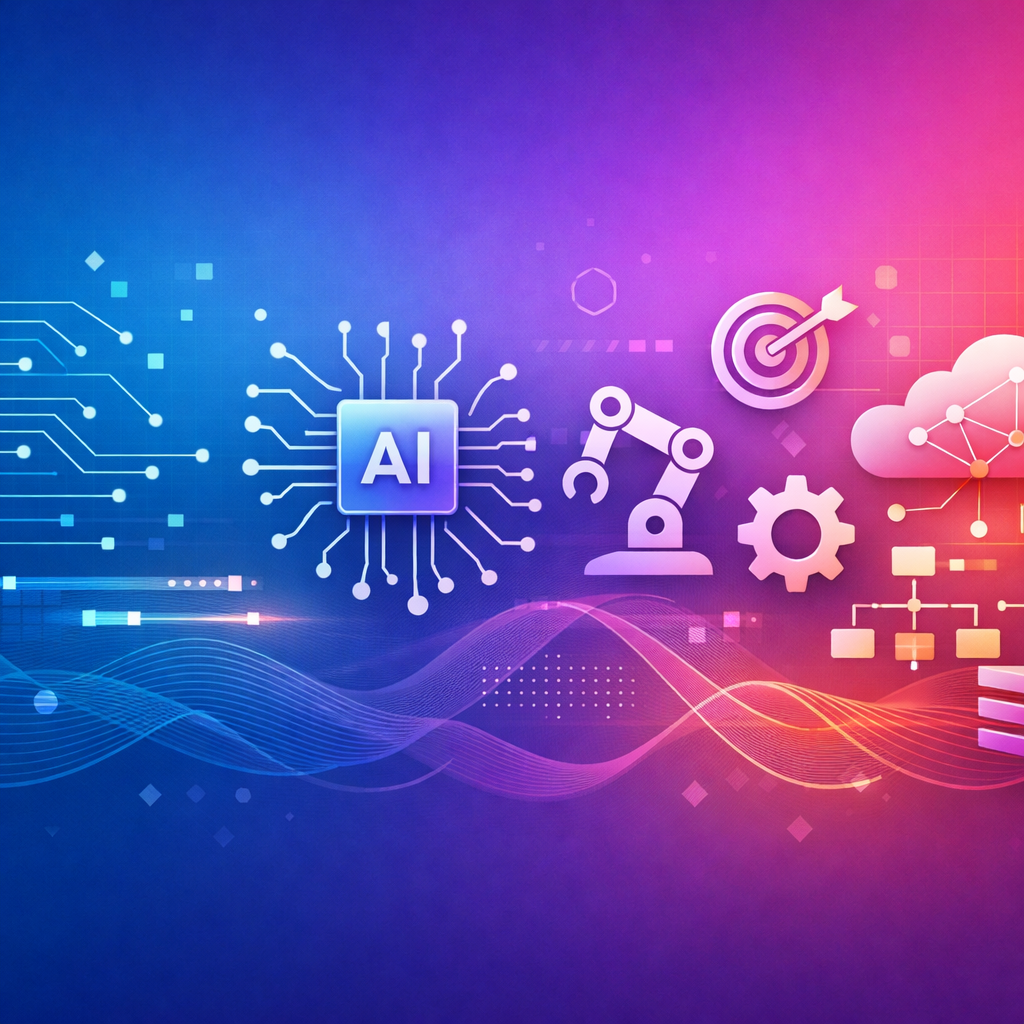Revolutionising Service Teams: Key AI Trends for 2024
Artificial Intelligence (AI) is making waves across various industries, and the service sector is no exception. Service teams are increasingly leveraging AI to enhance customer experiences, streamline operations, and improve overall efficiency. As AI technology continues to evolve, it is reshaping the way service teams interact with customers and manage their workflows. In this blog, we’ll explore the key AI trends for service teams in 2024, based on insights from industry experts and the latest advancements in AI technology.
AI Trends for Service Teams in 2024
1. AI-Powered Customer Support
AI-powered customer support is one of the most significant trends in the service industry. Chatbots and virtual assistants are becoming increasingly sophisticated, enabling service teams to provide instant, 24/7 support to customers. These AI tools can handle a wide range of inquiries, from answering common questions to troubleshooting issues, allowing human agents to focus on more complex tasks.
- Automated Responses: AI chatbots can provide quick, automated responses to common customer queries, reducing wait times and improving customer satisfaction.
- Personalised Support: AI can analyse customer data to provide personalised responses and recommendations, enhancing the overall customer experience.
- Multilingual Support: AI-driven tools can offer support in multiple languages, making it easier for service teams to assist a global customer base.
2. Predictive Analytics for Proactive Service
Predictive analytics is becoming a game-changer for service teams, enabling them to anticipate customer needs and address potential issues before they escalate. By analysing historical data and customer behaviour, AI can predict when a customer might require assistance or when a product is likely to fail.
- Proactive Maintenance: Service teams can use predictive analytics to schedule maintenance or repairs before a problem occurs, reducing downtime and improving customer satisfaction.
- Customer Retention: AI can identify patterns that indicate a customer is at risk of churn, allowing service teams to take proactive steps to retain them.
- Optimised Resource Allocation: Predictive analytics can help service teams allocate resources more effectively, ensuring that the right personnel are available at the right time.
3. AI-Driven Knowledge Management
Knowledge management is a critical component of effective customer service, and AI is enhancing the way service teams manage and access information. AI-driven knowledge management systems can automatically organise and update knowledge bases, making it easier for service agents to find the information they need.
- Automated Knowledge Updates: AI can scan and update knowledge bases in real-time, ensuring that service teams have access to the most current information.
- Contextual Search: AI-powered search tools can deliver relevant results based on the context of a query, helping service agents quickly find the information they need to assist customers.
- Self-Service Options: AI can enable more effective self-service by providing customers with accurate, easy-to-find answers to their questions, reducing the burden on service teams.
4. AI in Workflow Automation
Automation is another area where AI is having a significant impact on service teams. By automating routine tasks, AI allows service teams to focus on more strategic activities and improve overall efficiency.
- Ticket Routing: AI can automatically route customer inquiries to the appropriate department or agent, reducing response times and ensuring that issues are handled by the right personnel.
- Process Automation: AI-driven tools can automate repetitive tasks, such as data entry and follow-up emails, freeing up service agents to focus on more complex tasks.
- Performance Monitoring: AI can monitor service team performance in real-time, providing insights into areas for improvement and helping teams optimize their workflows.
5. Enhanced Customer Feedback Analysis
Understanding customer feedback is crucial for improving service quality, and AI is making it easier for service teams to analyse and act on this feedback. AI-powered sentiment analysis tools can quickly process large volumes of customer feedback, identifying key trends and areas for improvement.
- Sentiment Analysis: AI can analyse customer reviews, social media posts, and survey responses to gauge overall customer sentiment, allowing service teams to address negative feedback proactively.
- Trend Identification: AI can identify emerging trends in customer feedback, helping service teams stay ahead of potential issues and continuously improve their services.
- Automated Surveys: AI can automate the creation and distribution of customer satisfaction surveys, ensuring that service teams receive timely and relevant feedback.
What to Expect in the Future
As AI technology continues to advance, service teams can expect even more innovative tools and capabilities that will further enhance their ability to deliver exceptional customer experiences. Here are some trends to watch for in the coming years:
- AI-Driven Personalisation: AI will enable even more personalised customer interactions, tailoring responses and solutions to individual customer preferences and needs.
- Increased Use of Virtual Assistants: Virtual assistants will become more prevalent, assisting not only customers but also service agents by providing real-time information and support during interactions.
- Integration with IoT Devices: The integration of AI with Internet of Things (IoT) devices will allow service teams to monitor and manage connected products remotely, offering proactive maintenance and support.
Conclusion
AI is transforming the way service teams operate, providing new tools and capabilities that enhance efficiency, improve customer experiences, and drive better outcomes. From AI-powered customer support to predictive analytics and workflow automation, the trends outlined in this blog highlight the growing importance of AI in the service industry. As we move into 2024, service teams that embrace these AI trends will be better positioned to meet the evolving needs of their customers and stay ahead of the competition. By leveraging AI, service teams can deliver more personalised, proactive, and efficient service, ultimately leading to higher customer satisfaction and loyalty.
From the blog


